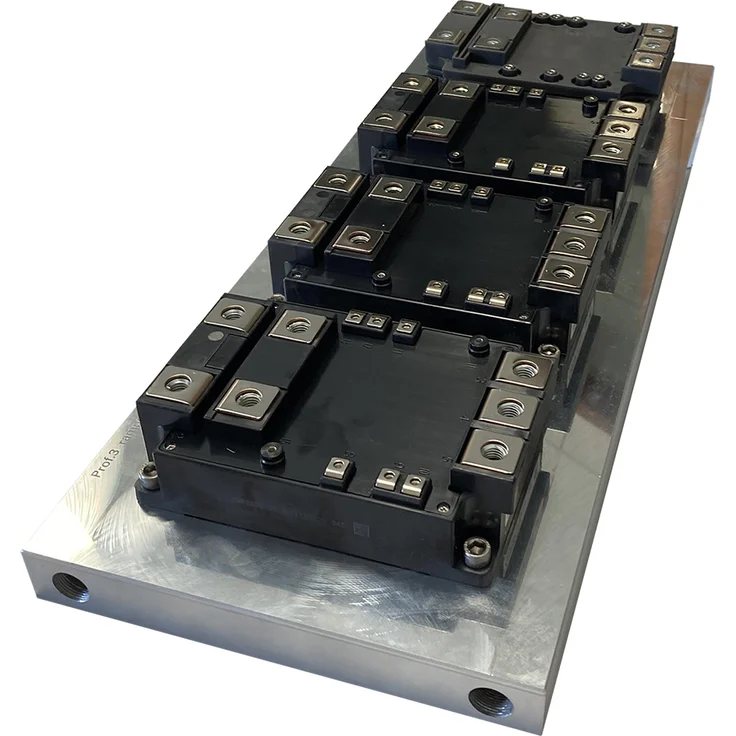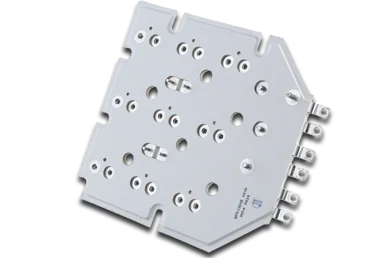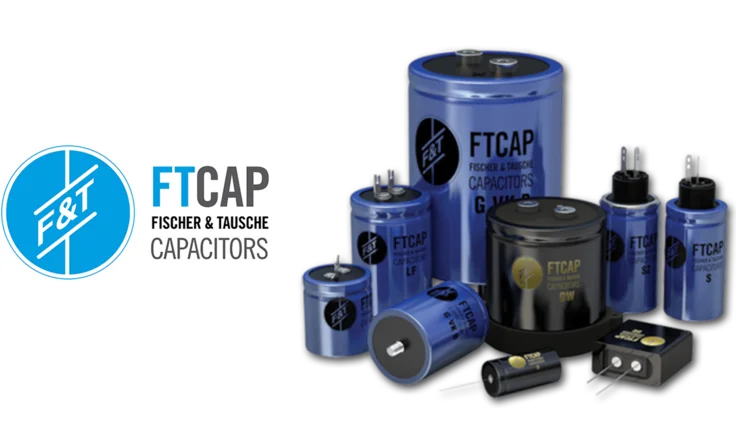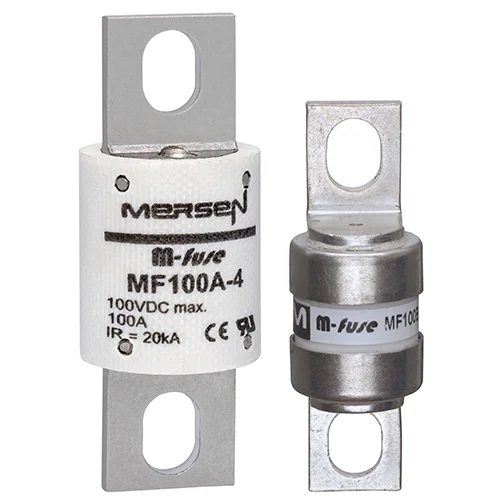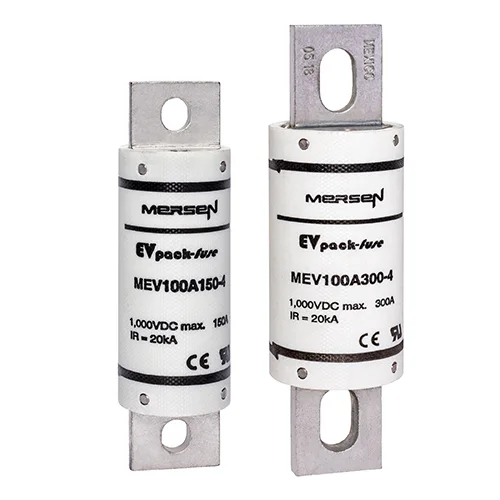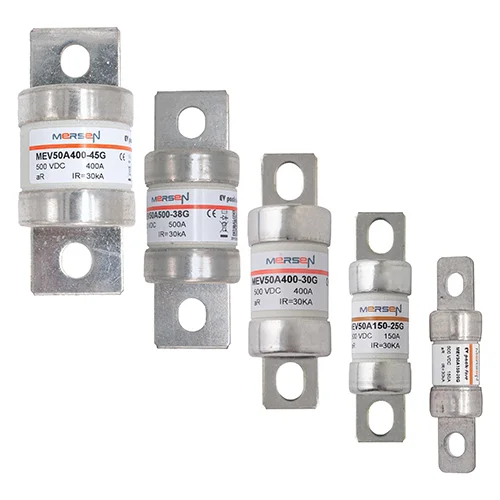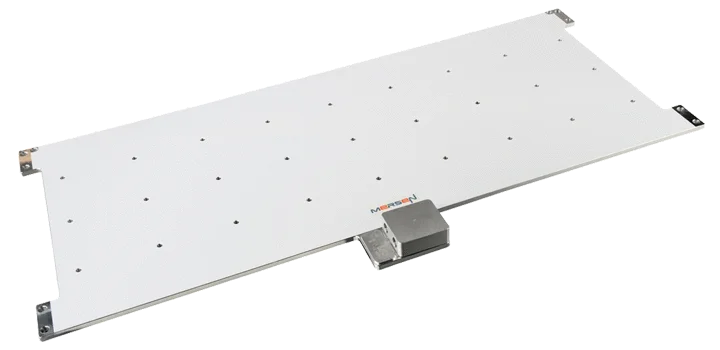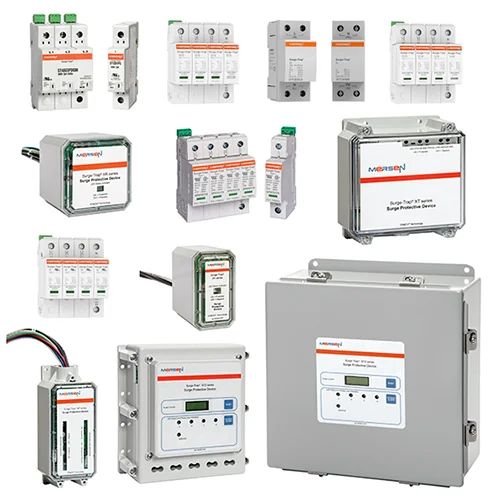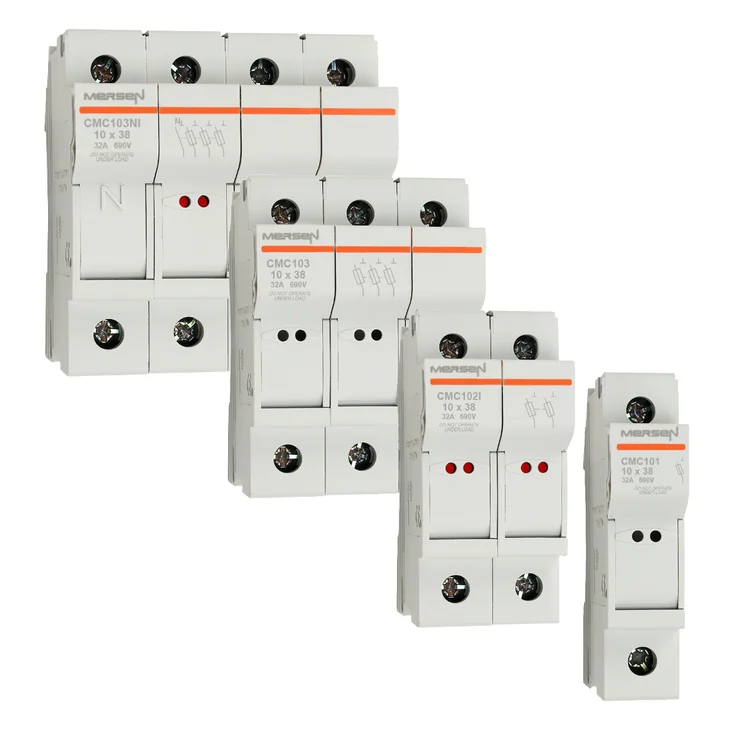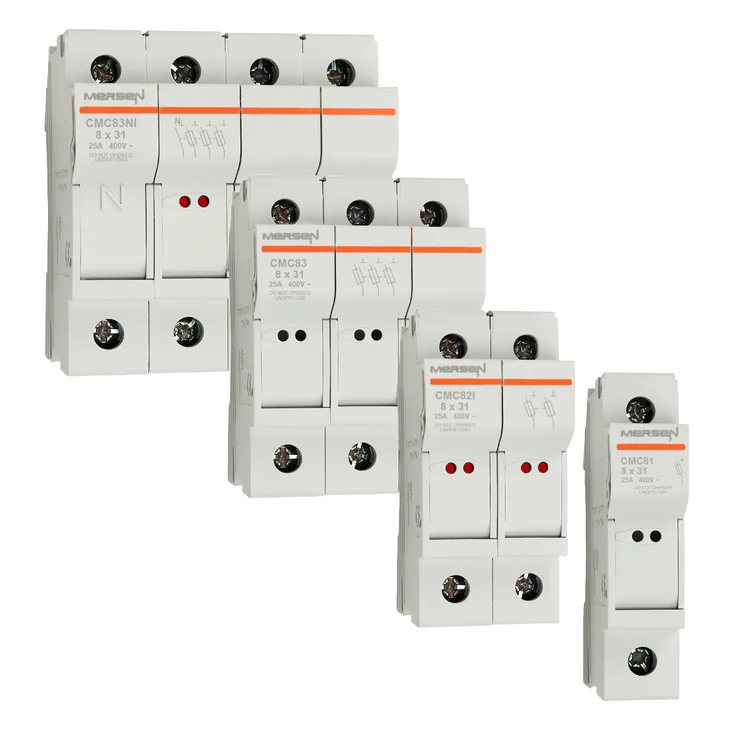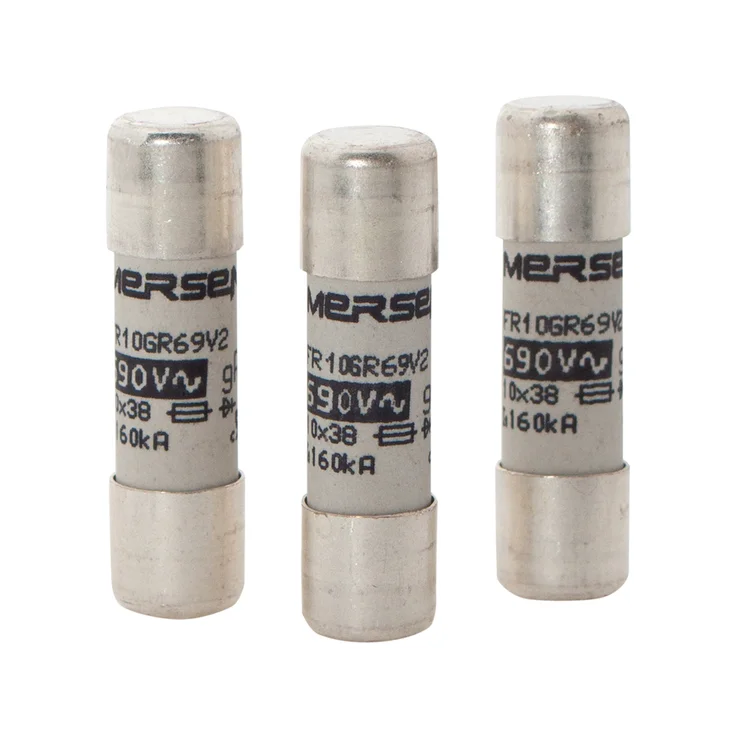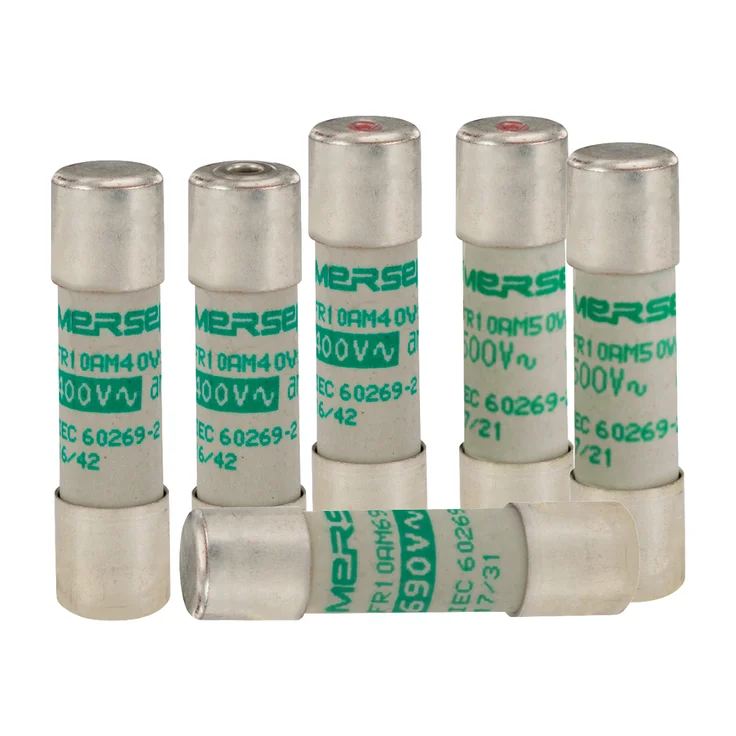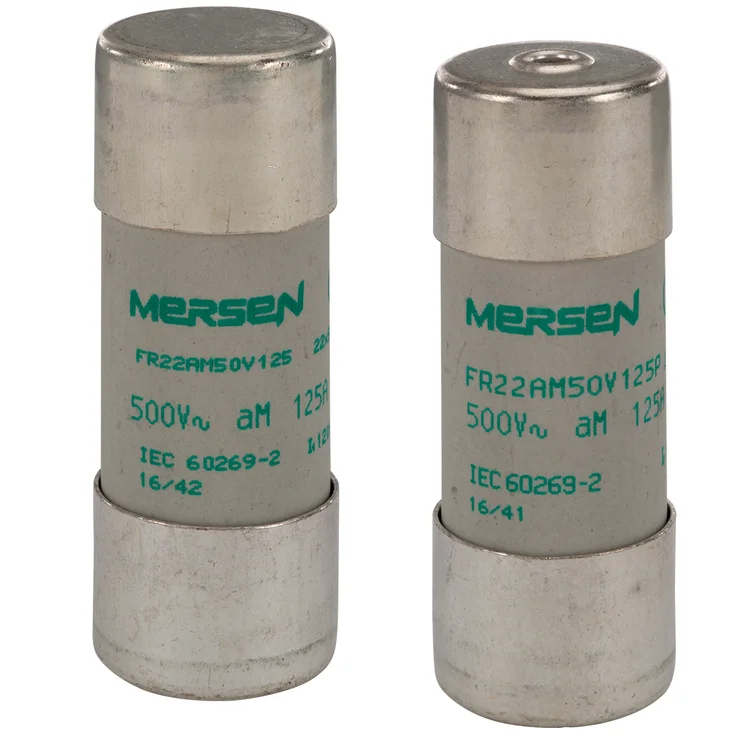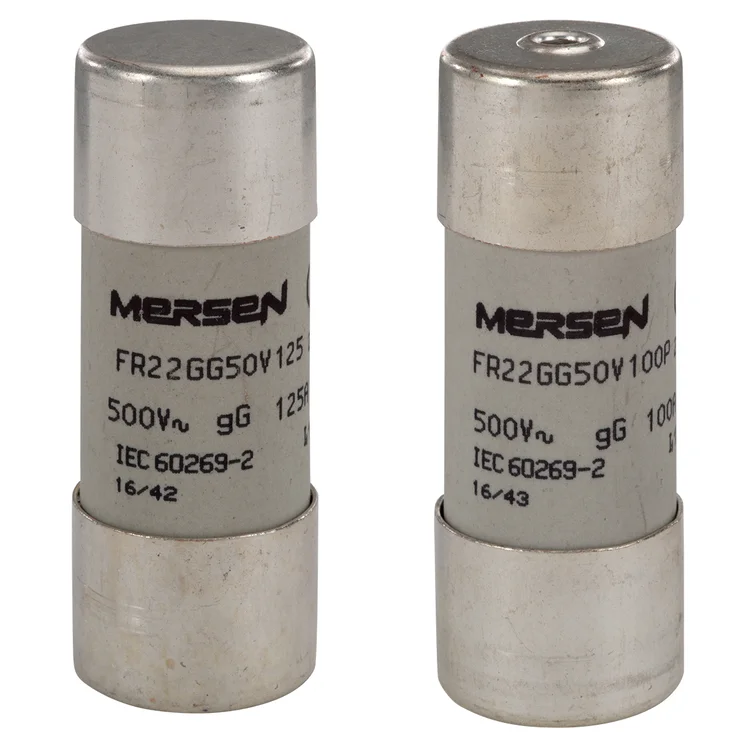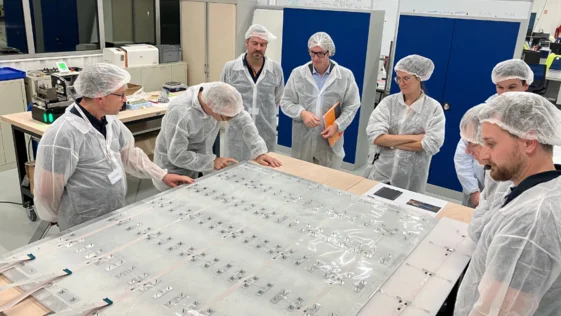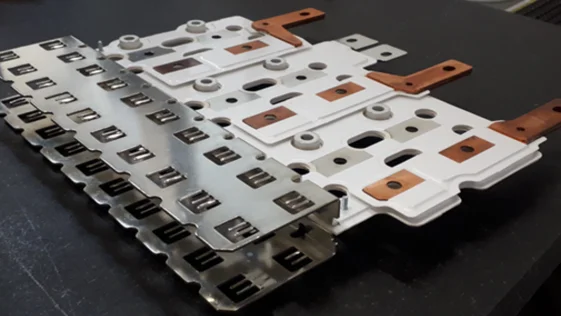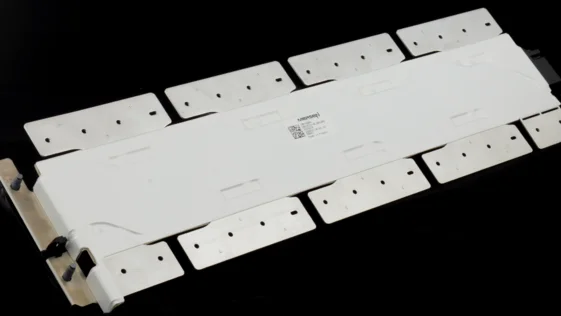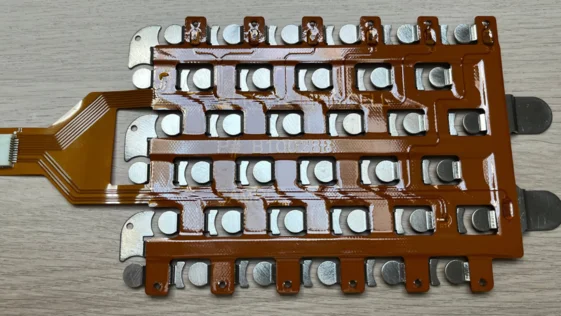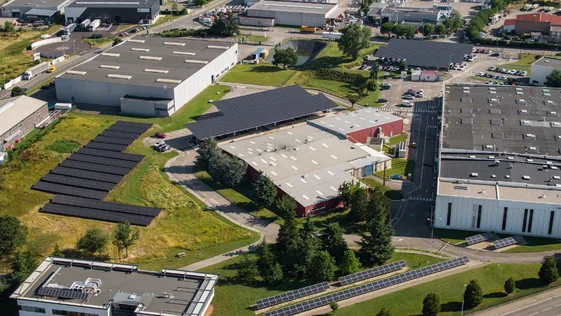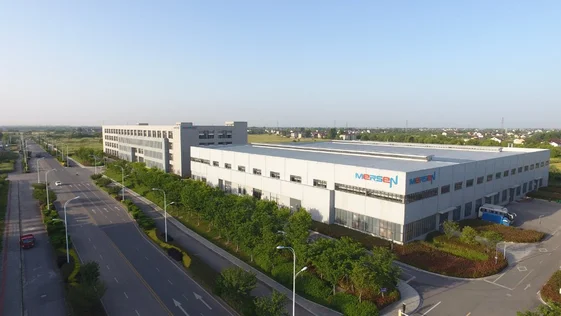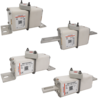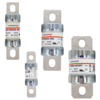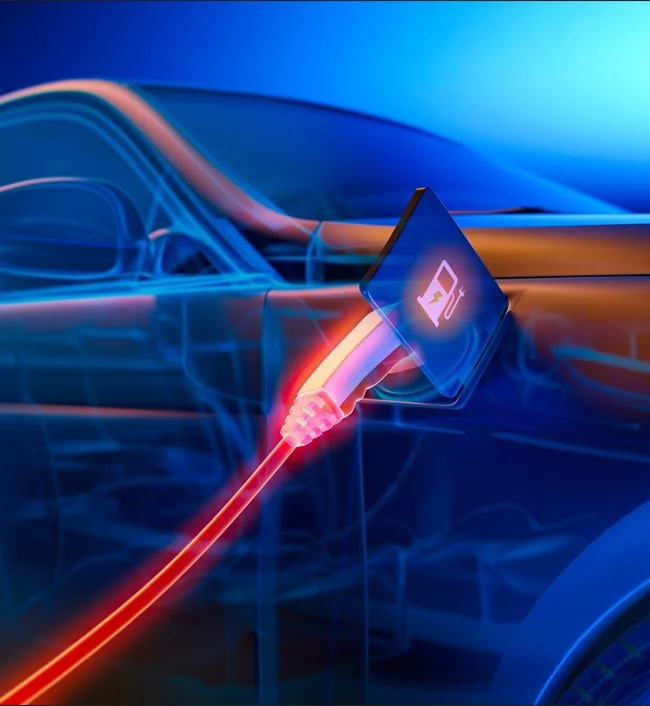
Mersen at the forefront of progress for electric vehicles
With a focus on electric vehicles, Mersen delivers solutions that not only propel the industry forward but also underscore a commitment to environmental stewardship and sustainable innovation
-
Complete Solutions for E-Mobility
Driving ahead for performance and sustainability
Mersen stands at the forefront of electric mobility, continuously innovating to drive the industry forward with sustainable and efficient solutions for electric vehicles.
Mersen is not only willing to deliver products but brings its expertise to support more efficient solutions for our customers.
Mersen offers a wide range of products and solutions covering all aspects of on-board and off-board safety and power management for electric vehicles.
-
What Mersen offers to Electric Vehicles
Mersen serves the EV market with two main products lines.
Mersen's advanced protection devices is a testament to its expertise in electric vehicle safety. Electric vehicle fuses are specifically designed to protect against overcurrent and short circuits, which are critical for the safety of passengers and heavy electric vehicles such as e-buses and e-trucks.
These components are vital for safeguarding the intricate electrical systems within electric vehicles, ensuring that both the vehicle and its passengers are protected from electrical risks.
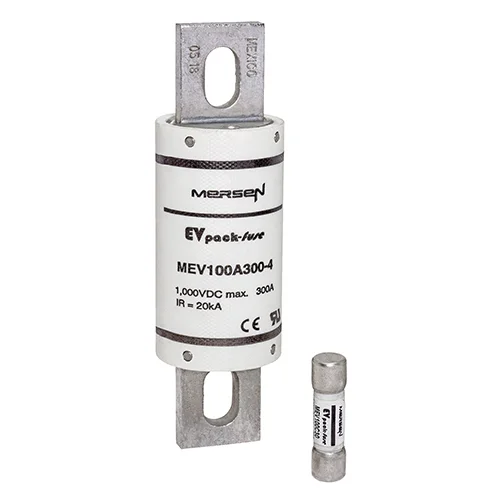
Mersen's bus bar solutions are integral to the efficient power distribution in electric vehicles. These bus bars are not just conducting electricity; they are engineered for peak performance, offering high conductivity and robustness in a compact design.
They play a pivotal role in the functionality of electric vehicles, ensuring that electric vehicles receive a steady and reliable supply of power.
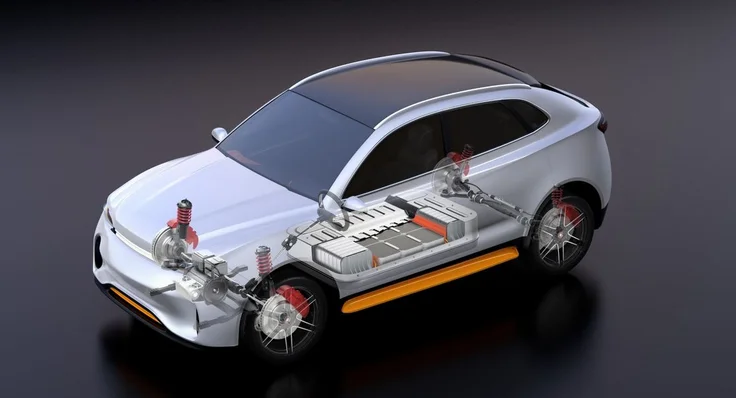
-
Electric vehicle
Contact our fuse and bus bars experts.
As the EV market covers a wide range of applications and faces various challenges and requirements, Mersen’s product range extends well beyond standard offerings.
Contacting Mersen is always the best way to ensure your system is sized correctly and to benefit from our latest developments.
-
A comprehensive offering
Passenger cars, e-bus & e-trucks
Mersen offers a wide range of products and solutions covering all aspects of on-board and off-board safety and power management for electric vehicles.
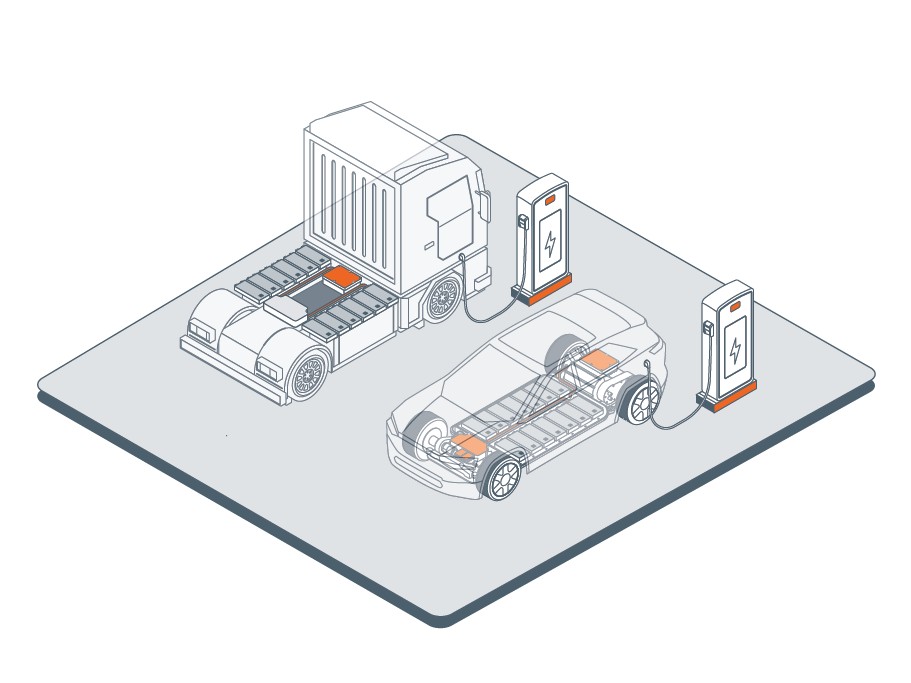
-
Power Inverter
-
Battery Module
-
-
Powering electric vehicles
Electric vehicle battery pack
An EV battery pack (Electric Vehicle battery pack) is the main source of power for electric vehicles. It stores electrical energy and supplies it to the vehicle’s electric motor to drive the wheels
Battery cell contacting system (CCS) in EV battery packs
Mersen offers Cell Contacting Systems (CCS), also called Cell Contacting Assembly (CCA), which connects the individual battery cells within the vehicle's battery pack. Effective cell connection is crucial for the performance, safety, and longevity of the battery system in an electric vehicle.
Mersen CCS’ solution is based on laminated technology. The CCS copper conductors connecting the different cells are encapsulated in a thin dielectric material. This technology allows for multiple layers of conductive material.
Customers using such technology are benefiting from a weight saving of up to 30% on insulation material versus standard technology such as over-molding. This saving is not only impacting the weight but also the thickness of the whole CCS assembly.
Monitoring functions
Besides the electrical connection of the cells, the Mersen CCS are built with integrated monitoring functions. This solution enables the provision for real time environmental data such as temperature and electrical voltage measurements to be sent to the vehicle’s Battery Management Systems. Other monitoring functions can also be included in accordance with specific customer requirements.
This function has been historically managed by Flexible Printed Circuits (FPC), which are directly integrated into the CCS assembly. A unique “plug and play” solution can be delivered to customers.
Besides FPC, Mersen is offering other alternatives such as hybrid Flexible Flat Cable (FFC) & FPC as full FFC solutions with the goals to increase technical performance and optimizing the costs of this function.The CCS are suitable for any type of cells geometry and for any type of architecture: cell-to-module, cell-to-pack or cell-to-chassis.
-
Bus Bars
Cells Connecting System (CCS)
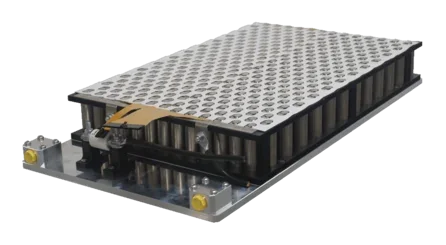
-
Short-Circuit Protection according to UN38.3 standards
During the transportation of EV battery packs on route and before their integration into the electric vehicles, they should fulfil specific safety requirements according to UN38.3 standards.
UN38.3 is a United Nations safety standard that applies to the transportation of lithium batteries, including those used in electric vehicles (EVs), consumer electronics, and industrial applications.
InBat fuse line-up
InBat fuse line-up is the latest addition to Mersen's growing DC Short-Circuit Protection Device portfolio, engineered to provide unsurpassed electrical safety for battery modules in today’s electrical storage systems and applications.
InBat fuse line is designed to fulfil UN38.3 requirements for battery module short-circuit test and thermal runaway avoidance. This series of fuses provide electrical protection against short circuits caused by structural deformation of the batteries.
Mersen’s InBat fuses can be used for protection of all types of lithium-ion battery cells: cylindrical, prismatic and pouch.
Thanks to their laser welding compatible terminals, InBat fuse line-up are customizable to match every client’s module stack assembly process. InBat’ compact footprint greatly enhances the ease of integration within battery modules.
-
Battery module fuses
InBat fuse
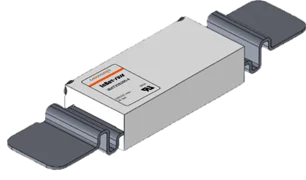
-
Battery Disconnect Unit (BDU)
A Battery Disconnect Unit (BDU) in an electric vehicle (EV) is a critical safety and control component that manages the connection and disconnection of the high-voltage battery pack from the vehicle’s electrical system.
Mersen offers fuses and busbars as component carrier for EV BDU’s.
Electric vehicle Fuses in Battery Disconnect Unit
EVpack-fuse line-up belongs to Mersen’s DC Over-Current protection (O.C.P.) portfolio specifically developed to address on-board electric and hybrid vehicles applications. EVpack-fuse provides the ultimate protection by offering reliable clearing of DC fault currents in challenging environments and complies with the high-quality requirements of the automotive industry.
Thermal management bus bars
Battery Disconnect Units are gathering different components (current sensor, contactors, fuses, ...) in the same housing. To connect them, the typical solution is to use single copper bar. With increase of the power, more current is flowing through the bus bars and to limit excessive heating, the cross section of the bus bars increases while customers are trying to reduce the size of the assembly.
A way to limit the size of the conductors and save weight and space is to cool the bus bars. To assure a good electrical insulation and limit the thermal resistance, Mersen has developed a unique solution based on laminated bus bars to connect all components in a single bus bar assembly. This laminated bus bar assembly thermally links the hot points of electrical components to the cold plate to ensure optimized cooling. Electrical insulation is ensured by the laminated insulation layers.
As added functions, the low voltage signal can be directly added to the laminated busbars to ease the mounting process by reducing the number of wiring harness and reducing error’s possibilities.
-
Distributing high-voltage power
Junction Box
In an electric vehicle (EV), a High Voltage (HV) Junction Box acts as a central hub for distributing high-voltage power from the battery pack to various high-voltage components, such as the electric motor, inverter, onboard charger, and other auxiliary systems. It houses fuses and circuit breakers that protect the high-voltage circuits from short circuits, overcurrent, and other electrical faults
Alongside Mersen fuses for such applications, Mersen offers customers a deeper expertise on the optimisation of the junction box. Our electrical protection and thermal expertise’s can support the protection strategy as well as the optimal thermal sizing of the system.
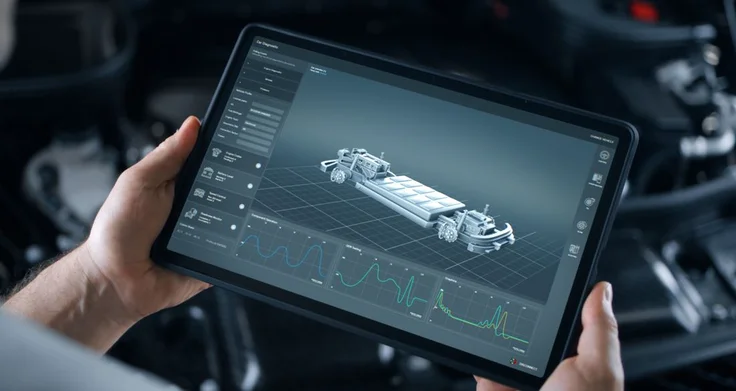
-
OBC
EV On-Board Charger (OBC)
An On Board Charger (OBC) in an electric vehicle (EV) plays a crucial role in managing the charging process of the vehicle's battery pack. The main function of the OBC is to convert the alternating current (AC) from the power grid into direct current (DC) that can be used to charge the vehicle's battery pack.
Mersen can support customers with fuses and Surge Protective Devices to safeguard the OBC from electrical faults such as overcurrents and overvoltages. -
Inverter
Electric Vehicle inverter
An inverter in an electric vehicle (EV) is a critical component that converts direct current (DC) from the battery into alternating current (AC) to power the electric motor.
One of the key challenges with inverters with SiC power modules is to limit the inductivity in the system. Using laminated bus bars conductors can be overlapped resulting in:
- inductance reduction
- weight saving
- volume saving
-
Certifications.
Production / Compliance
Mersen EV solutions are mainly produced within two Autonomous Production Unit (APU) located in Saint-Bonnet de Mure (France) and Shanghai (China).
Both plants are IATF, ISO9001, ISO14001 & ISO45001 certified.
-
From production to performance
Certified Production and Advanced Testing for Reliable EV Solutions
Electrical engineering test lab and simulation
Mersen designs, manufactures and sells products and services for various markets in electrical engineering. Those products and services are often highly technical and must comply with many functional requirements, as well as being qualified and certified, to guarantee excellence in operation.
Mechanical and Thermal Simulation
To reduce time to market, Mersen has developed its own simulation capabilities and relies on a dedicated team of experts to support customers in development phase.
Mechanical and thermal simulations are the daily business of our experts and can provide reliable data at component level but also at system level. It helps customers to evaluate the influence of all the components surrounding Mersen products and anticipate design issues before to “test in situ” the complete device.Test lab
But simulating is not enough and should be supported by real testing to calibrate the simulation models. That is where Mersen relies on its test lab center in Saint-Bonnet de Mure (France) which was established in 1981. With the recent development of e-mobility activities and the need for specific qualification requirements, Mersen has invested in the equipment to be able to run almost all the tests in-house.
The dedicated equipment for e-mobility is offering a solution to the following categories:
- Low voltage tests, endurance & temperature rise
- Power platforms 3MVA, 20MVA, 400MVA
- Capacitors benches (di/dT, 30MW)
- Dielectric withstand tests
- Environment & mechanical tests
-
Frequently Asked Questions
Our EV fuses experts reply to your questions
-
Does Mersen support customers with sub-assembly design?
Yes! Thanks to its expertise in thermal management and electrical protection, as well as its close relationship with its customers, Mersen is able to demonstrate its value as a key partner in it’s customers’ development of junction box or power distribution units.
-
What are the advantages of Mersen’s fuses for EV?
Mersen’s fuses for electric vehicles are designed with several key advantages. Firstly, they offer superior protection, safeguarding against overcurrents and short circuits, which are critical for the safety and longevity of EVs. Secondly, these fuses are engineered for high performance, ensuring minimal energy loss and optimal efficiency in power distribution. Lastly, Mersen’s fuses are versatile and can be used in a variety of EV applications, from battery modules to charging stations, making them a comprehensive solution for electrical protection in electric vehicles.
-
Does Mersen offer customization of fuses?
In addition to the fuses available in our catalogs, Mersen is able to offer a solution for customizing these products to meet our customers' requirements and applications as closely as possible. This customization can cover mechanical aspects as well as the fuse's intrinsic performance.
-
Does Mersen offer fuses for charging stations?
Yes, Mersen offers a range of fuses specifically designed for EV charging stations. These fuses are engineered to handle the high power demands and unique requirements of EV charging, providing reliable protection against overcurrent and short circuit conditions. Mersen's fuses for charging stations are designed to ensure safety and efficiency, accommodating the rapid growth and technological advancements in EV charging infrastructure.
-
Does Mersen offer battery cooling solutions for electric vehicles charging station?
Mersen offers advanced cooling solutions, such as heat sinks for EV charging stations. Although Mersen is a leader in thermal management and heat sink technology, their focus in the EV sector is primarily on electrical protection and fuse technology. Mersen's expertise in advanced materials and thermal management is more broadly applied in other industrial and electronic applications.
-
-
Contact
Need to contact our fuse experts in electric vehicles?
